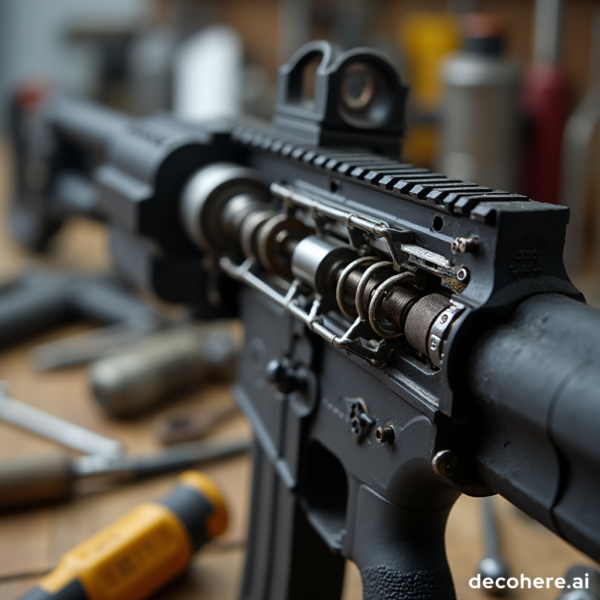Comprehensive Guide to Launching a Successful Mobile Bar Business
Introduction: Why Start a Mobile Bar Business?
The mobile bar business has experienced rapid growth, driven by the demand for unique and customizable beverage services at weddings, corporate events, festivals, and private parties. Unlike traditional brick-and-mortar bars, a mobile bar offers flexibility and lower startup costs, making it an attractive opportunity for aspiring entrepreneurs. However, building a sustainable mobile bar business requires planning, compliance, and creative marketing. This guide will walk you through every critical step, ensuring you can launch and grow your venture with confidence.
Step 1: Conduct Market Research
Begin with thorough market research to assess local demand and competition. Investigate existing mobile bars in your area, analyze their offerings, and identify gaps you could fill. Consider surveying event planners and potential customers to understand preferences and pricing expectations. Target demographics often include wedding planners, corporate event organizers, and private hosts seeking memorable experiences. Effective market research informs your business concept and helps you set competitive pricing and unique selling points. [1] [2]
Step 2: Develop a Strategic Business Plan
Transform your research into a comprehensive business plan. Outline your vision, target market, services, financial projections, and growth strategies. Define your brand identity and key differentiators-such as signature cocktails, themed experiences, or eco-friendly practices. Your plan should also address operational logistics, staffing needs, and marketing channels. Consider using business plan software or consulting industry guides for structure. A robust plan will serve as your roadmap from launch to profitability. [1]
Step 3: Legal Requirements, Licenses, and Permits
Compliance is non-negotiable when alcohol is involved. Research state and local regulations regarding mobile alcohol service, and contact relevant licensing boards and health departments. Common requirements include:
- Alcohol licenses (often different from permanent bars)
- Food handling permits (when serving garnishes or mixers)
- Business registration and insurance
- Venue permissions (some locations may have restrictions)
Requirements vary by jurisdiction, so reach out to your local alcohol control board and health department for guidance. Factor in time and costs for applications and renewals. [2] [3]
Step 4: Design and Build Your Mobile Bar
Your mobile bar’s design is a reflection of your brand and service quality. Decide whether to purchase a trailer, retrofit a van, or build a custom cart. Consider factors such as transportability, setup speed, storage, and aesthetic appeal. Budget for construction, equipment, and branding. You can opt for DIY renovation to save costs or hire professionals for a polished look. Weigh the pros and cons based on your skills, timeline, and available funds. Building a memorable mobile bar is key to attracting high-value clients. [4]
Step 5: Acquire Equipment and Supplies
Essential equipment for mobile bar operations includes:

Source: pinterest.com
- Bar stands and counters
- Glassware and utensils
- Coolers or portable refrigeration
- POS (point of sale) system
- Transport vehicle
- Disposal containers
Procure reliable, durable supplies to ensure professional service. Test all equipment before event day to avoid disruptions. Consider scalable suppliers for growth. [2] [3]
Step 6: Build Relationships with Suppliers
Partner with reputable alcohol distributors, beverage suppliers, and local producers. Strong supplier relationships can secure better pricing, ensure reliable deliveries, and help you offer exclusive products. Negotiate contracts and terms for consistent supply. Test ingredients and materials for quality before each event to maintain standards. Consider local and national brands for mixers, garnishes, and disposables. [3]
Step 7: Develop a Menu and Define Your Services
Create a menu tailored to your target market. Signature cocktails, themed drinks, and customizable options can set you apart. Host tastings to refine offerings and gather client feedback. Define your core services-such as full-service bartending, beverage packages, and event customization. Clear service tiers simplify client decision-making and pricing. [3]
Step 8: Pricing, Booking, and Client Management
Establish transparent pricing models, considering factors like travel, staffing, setup, and alcohol costs. Offer package deals or custom quotes for different event sizes and requirements. Develop streamlined inquiry and booking processes. Use templates and email workflows to respond promptly and professionally. Track bookings, client preferences, and feedback to improve future offerings. Leverage digital tools to organize client communications and scheduling. [5]
Step 9: Branding, Marketing, and Lead Generation
Craft a compelling brand identity with consistent visuals, messaging, and values. Build a professional website showcasing your bar, services, and testimonials. Optimize for search engines and include high-quality event photos. Utilize social media platforms to reach event planners and clients. Engage audiences with behind-the-scenes content, cocktail tutorials, and client stories. Network with venues, wedding planners, and event coordinators to generate referrals. Consider digital advertising and local sponsorships for increased visibility. Develop an effective lead generation funnel to capture and convert inquiries. [4] [5]
Step 10: Operations, Staffing, and Event Execution
Plan logistics for transportation, setup, staffing, and event management. Hire and train bartenders who embody your brand’s professionalism and hospitality. Prepare for each event with checklists covering equipment, supplies, and client requirements. Develop contingency plans for common challenges (weather, delays, equipment failure). Post-event follow-up fosters client loyalty and generates valuable referrals.
Alternative Pathways and Additional Resources
If you’re unsure where to begin, consider purchasing a comprehensive mobile bar startup guide or consulting with established mobile bar operators. Some providers offer business-in-a-box bundles, including step-by-step guides, legal templates, and marketing materials. You can also join industry associations or online communities for support, training, and ongoing education. When searching for legal requirements, use phrases like “state alcohol licensing board” and “health department permits” to find official contacts in your area. [5] [4]
Key Takeaways
Launching a mobile bar business offers flexibility, creativity, and growth potential. Success depends on strategic planning, compliance, marketing, and exceptional client experiences. Use this guide as your foundation, supplementing with industry resources and ongoing learning. Take action by contacting your local licensing agencies, building supplier relationships, and connecting with event professionals to start booking your first clients.

Source: onemorecupof-coffee.com
References
- [1] MenuTiger (2024). 7 Fundamental Steps in Starting a Mobile Bar.
- [2] Biz2Credit (2025). How to Start a Mobile Bar: Costs, Challenges.
- [3] Mobile Bev Pros (2025). How to Start a Mobile Bar Business in 2025.
- [4] Detroit Mobile Bar (2021). Mobile Bar Startup Guide.
- [5] Luxe Bar Services LLC (2025). Mobile Bar Business Starter Bundle.



